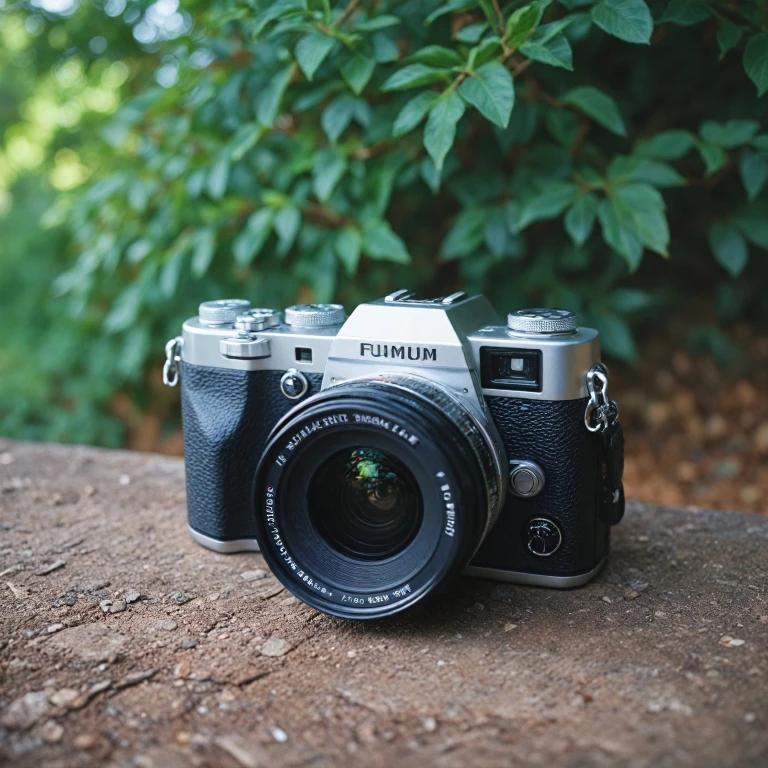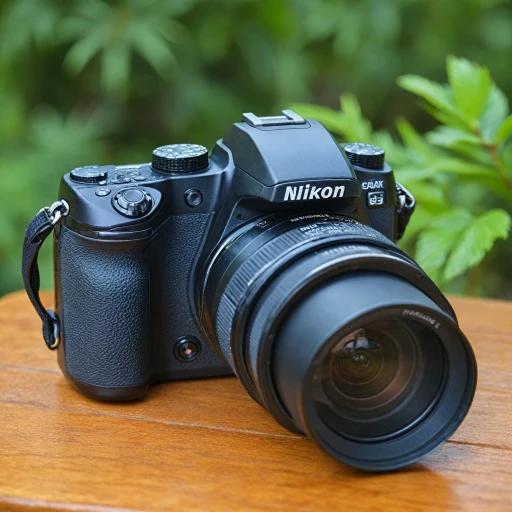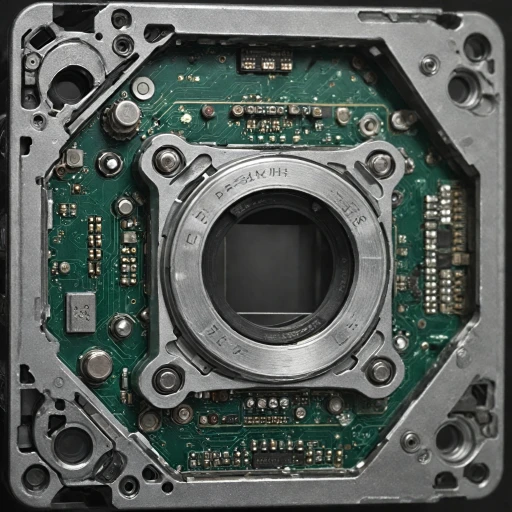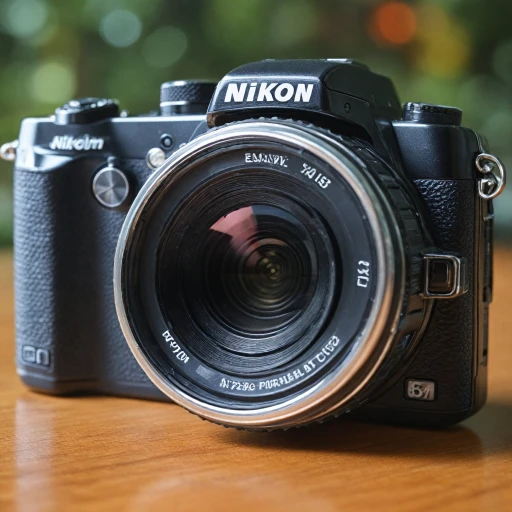
Understanding 4K Resolution
Demystifying the 4K Resolution
The world of digital cameras has evolved significantly, and 4K resolution is at the forefront of this evolution. This technology, offering approximately 8.3 million pixels, provides four times more detailed images as compared to standard 1080p resolution. Whether you're vlogging or capturing nature's beauty in still photography, the clarity offered by 4K is unparalleled.
The impact on image quality is evident, as photographers benefit from capturing minute details previously unseen. This enhancement also applies to video, where high definition brings a new dimension to video recording and playing back on displays with compatible resolution. Notably, the aspect ratio remains consistent, thus maintaining the original composition and preventing any distortion.
In the realm of security cameras, such as dome cameras or even more covert ones, 4K resolution ensures that details aren't lost, improving both image and video quality. A security camera with 4K capability offers superior digital zoom without compromising clarity, making it an excellent option for enhancing security.
Beyond professional photography and home security, 4K resolution has found its place in various vlogging cameras, where real-time quality and easy editing play crucial roles. With digital cameras offering dual lens setups and mirrorless sensors, low light performance is significantly improved, delivering impeccable results even in challenging conditions.
With numerous products available, the market showcases different brands, like the Panasonic Lumix, which boasts features supporting 4K video and high-resolution imaging. Buyers often consult reviews, considering factors like battery life, price, and image stabilization, when selecting the best camera that matches their needs. For more on the subject of hidden tech in cameras, you can visit this blog post.
Overall, the advent of 4K resolution in digital cameras not only serves professionals but also casual users aiming for fun without compromise. Future sections will dive deeper into the practicalities and potential of this advanced technology in various uses.
Benefits of 4K in Photography and Videography
The Elevating Impact of 4K Resolution on Photography and Videography
The introduction of 4K resolution in digital cameras marks a significant leap in the quality of visual content. With four times the number of pixels than standard Full HD, 4K offers immense clarity and detail. This high level of resolution enhances the depth and vividity of each image and video frame. Here's how 4K is revolutionizing both photography and videography:- Enhanced Image Quality: 4K cameras provide unparalleled image quality, thanks to their ability to capture more details. Users can benefit from superior digital zoom capabilities without compromising resolution. This is particularly advantageous for vlogging camera enthusiasts who demand high definition output in various lighting conditions.
- Improved Cropping and Editing Flexibility: When working with 4K footage, the extra resolution provides ample room for cropping and editing. Adjusting the aspect ratio or applying digital zoom becomes easy without losing clarity. This is especially useful for vloggers and point shoot camera users looking to highlight specifics within their frames.
- Optimal for Screen Standards: As televisions and monitors continue to advance with 4K becoming the standard, using cameras that can shoot at this resolution ensures compatibility with modern displays. This applies to everything from home videos recorded on a Panasonic Lumix to security camera footage, where detail is critical for surveillance.
- Future-Ready Content: Investing in a 4K camera positions users at the forefront of technology, ensuring longevity and relevance as 4K becomes increasingly ubiquitous. Whether you're recording video or capturing images, the transition to 4K allows for content that remains high quality and competitive, even as industry standards evolve.
Challenges of 4K Technology
Overcoming the Hurdles of 4K Technology
The allure of 4K resolution in digital cameras is undeniable, offering unparalleled image quality and exceptional video clarity. However, adopting this cutting-edge technology is not without its challenges. Let's dive deeper into the hurdles photographers and videographers face when navigating 4K resolution. One major challenge is the substantial file size associated with 4K videos and images. As resolution increases, so does the data being recorded, meaning users need ample storage solutions and high-capacity memory cards. This can drive up the overall cost, putting a strain on the budget, especially for those transitioning from full-frame or point-and-shoot cameras. Processing power is another bottleneck. Cameras equipped with 4K capabilities often require more robust processing systems to handle the massive amount of data efficiently. This can impact battery life, as continuous high-resolution recording drains power quickly. Users might find themselves in need of extra batteries to sustain long shooting sessions. Additionally, the software and hardware required to edit 4K content can be demanding. Many consumer-grade PCs struggle under the weight of high-definition editing, necessitating investments in specialized, high-performance computing equipment. This may further extend to the need for professional editing software that can manage larger files without compromising speed. Low light performance and image stabilization are other critical concerns. While 4K cameras offer high resolution, some struggle in less ideal lighting conditions. Cameras like the Panasonic Lumix and mirrorless sensors are making strides in improving low light capabilities, but they're not always affordable or accessible to everyone. The physical setup of cameras also poses challenges. Security cameras, dome cameras, and vlogging models are adjusting to integrate all these features. Yet, achieving ease of use without sacrificing video quality can be tricky. Reviews often point to a lack of user-friendly interfaces or limited flexibility in frame and aspect ratio adjustments as areas needing improvement. Despite these obstacles, the benefits of 4K photography and videography cannot be underestimated. Understanding how to navigate these hurdles, from digital zoom issues to the complex digital ecosystem required, is key to making the most of this powerful technology in a practical, real-world application. Explore more about the most innovative camera offerings and how they adapt to current technological expectations in this expanded comparison of camera versatility.Comparing 4K Cameras: What to Look For
Key Features to Evaluate in 4K Cameras
When shopping for a 4K camera, there are several critical features that can significantly impact your photography and videography experience.- Resolution and Image Quality: Naturally, 4K resolution ensures that you capture every detail with richness and clarity. The number of pixels in 4K cameras offers high-definition quality that enhances both images and video, ensuring every frame has stunning definition.
- Lens Versatility: Whether it's the versatility of the Panasonic Lumix camera lenses or the high-quality digital zoom found in other models, the right lens can enhance the overall outcome of your recordings. Consider cameras that offer dual lens setups for varied shooting conditions.
- Low Light Performance: Cameras with good low light sensitivity help maintain quality when conditions aren't ideal. Look for features such as large mirrorless sensors that improve image quality in dim lighting by capturing more light.
- Battery Life and Portability: As digital cameras advance, so does their need for lasting battery life. Look for options that offer easy recharging and long-lasting performance, ensuring you’re always ready to capture the perfect moment.
- Stability for Clear Shots: Image stabilization is vital for reducing blur, particularly during hand-held recording or vlogging. Cameras with advanced stabilization allow for smooth, high-quality video and crisp photos.
- Price and Availability: The range is broad, from high-end professional products to affordable point-and-shoot options. Websites like Amazon offer numerous reviews which can provide insight into the best camera for your needs based on real user experiences.
- Security Camera Considerations: If your interest extends to security cameras, consider features like night vision and easy monitoring. Dome cameras and other security varieties offer different levels of security capabilities and price points.
The Future of 4K in Camera Technology
Evolution and Future Prospects
4K technology in cameras has already made significant strides, and the future holds even more potential. As more devices embrace 4K resolution, manufacturers are continuously pushing the boundaries of what these high-definition platforms can achieve. With advancements in image sensors, post-production capabilities, and growing demand for high-quality content, the trajectory for 4K cameras remains promising. The demand for even higher resolution and better video quality is not slowing down. As professionals and enthusiasts alike seek the best camera options, aspects like low light performance, digital zoom abilities, and ease of use become crucial. Many manufacturers, including those producing point-and-shoot models, are keen to integrate dual lens systems to enhance depth and clarity, often aligned with robust image stabilization features.Cost and Accessibility
Despite the high quality offered, one challenge remains the price of these sophisticated devices. While 4K cameras are more accessible than ever, variations in lens capabilities and frame rates can significantly affect cost. The digital camera market, from mirrorless sensors to full frame structures, is vast and offers options catering to different budget requirements. Thus, companies strive to balance affordability with premium recording capabilities. When reading product reviews on platforms like Amazon, potential buyers often weigh these factors heavily.Future Integrations and Innovations
Future 4K cameras might integrate more smart features, such as advanced security camera functions and enhanced vlogging capabilities. This includes innovations in night vision technology and digital cameras with longer-lasting battery life. High-end models likely will continue exploring the realm of AI-driven image processing and automated editing features, offering even more streamlined and professional video production experiences. Ultimately, the continued development and adoption of 4K technology in cameras will transform both professional and consumer markets. Whether it's enhancing security cameras for surveillance purposes or crafting a flawless vlogging video with crisp image recording, the world of 4K is expansive and ready to be explored.Real-World Applications of 4K Cameras
Practical Uses of 4K Cameras in Various Fields
In the realm of digital cameras, 4K resolution has become a game-changer, offering unparalleled image quality and video clarity. This advancement is not just limited to professional photographers and videographers but extends to various practical applications across different sectors.
Enhancing Video Quality in Vlogging
For content creators, particularly vloggers, 4K cameras provide a significant boost in video quality. The high resolution ensures that every frame captures intricate details, making the content more engaging for viewers. Cameras like the Panasonic Lumix are popular choices due to their excellent image stabilization and low light performance, crucial for creating high-quality vlogs.
Security Cameras with 4K Resolution
Security cameras have also benefited from the leap to 4K resolution. The increased pixel count allows for clearer images, which is vital for identifying details in security footage. Features like night vision and digital zoom enhance the capabilities of security cameras, making them more effective in monitoring and recording activities. Dome cameras with dual lens setups are particularly effective in providing comprehensive coverage.
Professional Photography and Videography
In professional settings, 4K cameras are indispensable. Whether it’s capturing high-definition images for commercial purposes or recording videos for documentaries, the quality offered by 4K resolution is unmatched. Full frame and mirrorless sensor cameras are often preferred for their superior image quality and versatility. These cameras are also equipped with advanced lenses that enhance the overall performance, making them the best cameras for professional use.
Consumer Market and Accessibility
On platforms like Amazon, a wide range of 4K cameras is available, catering to different needs and budgets. From point-and-shoot models to more advanced digital cameras, consumers can find products that suit their requirements. The price range varies, but the investment in a 4K camera is often justified by the superior quality and features offered.
Conclusion
As technology continues to evolve, the applications of 4K cameras will likely expand further. Whether for personal use or professional endeavors, the impact of 4K resolution in digital cameras is undeniable, setting a new standard for image and video quality.













